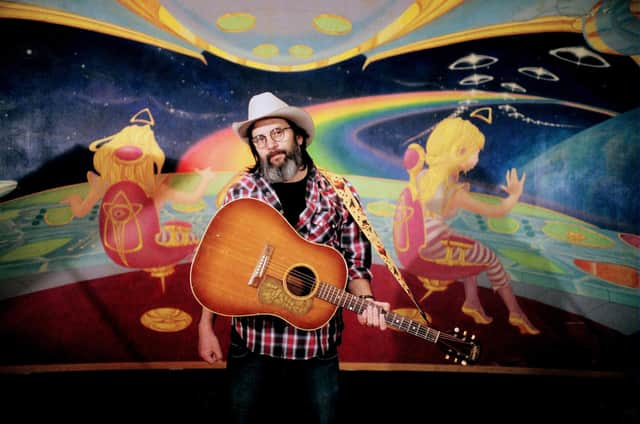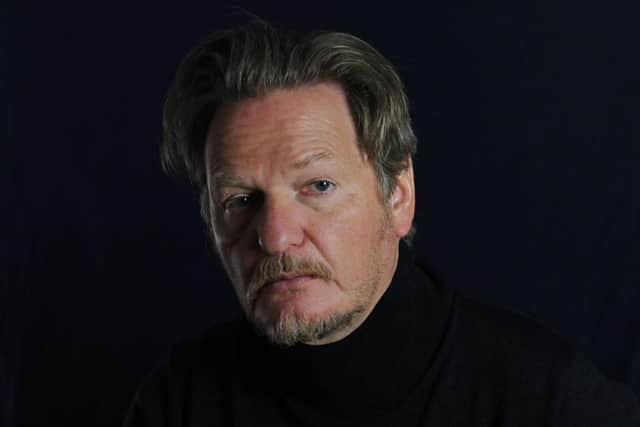Album reviews: Steve Earle | Interlopers | Erland Cooper | Album Club


Steve Earle: Jerry Jeff (New West) ***
Interlopers: Interlopers (Chrysalis Records) ****
Erland Cooper: Music For Growing Flowers (Mercury KX) ***
Album Club: Album Club (Last Night From Glasgow) ***
As well as being an ace roots songwriter and storyteller, Steve Earle is an erudite educator, paying tribute to his heroes in such a way that he might enthuse others. His latest album, Jerry Jeff, celebrates the songs of his earliest influence, Jerry Jeff Walker, the cowboy troubadour who passed away last October and is best known for penning the standard Mr Bojangles.
Jerry Jeff completes a trilogy of tributes to songwriting greats – Earle has already doffed the cap to Townes Van Zandt and Guy Clark on the 2009 and 2019 albums which bear their names (as well as his moving 2021 tribute to his late son Justin Townes Earle) – and features typically spirited work from his band The Dukes, which captures a sense of celebration in the room, with lithe bluegrass fiddle enlivening the peppy opening track Gettin’ By and accordion giving Cajun flavour to Gypsy Songman.
Advertisement
Hide AdAdvertisement
Hide AdSoulful fiddle and mandolin grace a grizzled, acoustic version of Mr Bojangles, while Charlie Dunn is a slice of non-fictional portraiture, giving credit to the renowned cowboy bootmaker. Elsewhere, the Walker canon is marked with the contrasting sparse directness of Old Road and the massed country rocker Hill Country Rain, which comes over like a rougher, rootsier Crosby, Stils and Nash, with Earle whooping gleefully by the end.


Steven Lindsay, former mainman of Glasgow outfit The Big Dish, has forged a career as a painter in recent times, but releases his first new music in 15 years as Interlopers with an eponymous debut album of songs written to get him through lockdown. Lindsay slips back seamlessly into his classy pop niche with the expansive, elegant likes of Something Got Lost Along the Way, the Roxy smoothness of shimmering AOR number Rainbow’s End and the beatific Blue Nile-like Hypnotised.
Prog folk ballad The Bell keeps just the right side of pomp, while the melodramatic Down on the Boulevard, with its chiming electric piano and accordion, is a taster for the closing Twins of Gemini, a previously unfinished Associates’ song lovingly completed at Alan Rankine’s urging and a fitting tribute to the late Billy Mackenzie.
Orcadian composer Erland Cooper has been chosen to write the soundtrack for Superbloom, a huge floral installation at the Tower of London to mark the Platinum Jubilee. Music for Growing Flowers, a beatless suite of synthesizer ambience, delicate piano, plaintive cello, eddying violin and haunting wordless vocals, will be played on a loop on site from June to September, accompanying (aiding?) the growth of 20 million flowers to create a huge urban garden in the moat of the Tower. Side one is available to hear now, with the second half to follow in August, and comes with bonus wildflower seed packets for those who wish to recreate the “superbloom” effect at home.
Album Club is the brainchild of former Zoey Van Goey member MJ McCarthy, who has carved a successful career as a sound designer and composer for stage and screen. The project features a host of his music and theatre compadres, including former Delgados Emma Pollock and Paul Savage, playwrights Douglas Maxwell and Cathy Forde, actress Isobel McArthur, journalist Peter Geoghegan and Theatre Gu Leor’s Rhona NicDhughaill, all of whom would gather in Glasgow’s legendary Laurieston Bar to discuss their favourite albums – and ended up making one.


McCarthy’s return to pop music is a delicate indie folk collection, from the soft, whimsical Make No Bets to the gently mesmeric When You’re Ready. Never Sleep Alone blends incantatory song and storytelling, while the plangent guitar and wheeze of accordion add to the urban romanticism of Glasgow odyssey Different Hours.
CLASSICAL
Vaughan Williams: Sinfonia Antartica & Symphony No 7 (Hallé) *****
Advertisement
Hide AdAdvertisement
Hide AdThe Hallé Orchestra’s postwar relationship with Vaughan WIlliams was legendary, championed by its then conductor Sir John Barbirolli. These days, the Hallé is thriving under Sir Mark Elder, whose complete cycle of Vaughan Williams’ symphonies comes to a close with this glorious pairing of the Sinfonia Antartica (No. 7) and No 9. Elder, a musician whose vision never allows preoccupation with minutiae to undermine the big picture, casts both these works in boundless chapters. The cinematic colour of the Antartica (drawn from Williams’s original 1948 soundtrack for Scott of the Antarctic), is as immense as it is bleak and mysterious. Any doubts lingering about the eminence of the Ninth (its 1958 premiere puzzled the critics), are dispelled by Elder’s spacious, superbly proportioned reading. It is profound, beguiling and inexorable. The Norfolk Rhapsody No 1 and The Lark Ascending offer pastoral asides, the latter lovingly distinguished by violinist Lyn Fletcher. Ken Walton
FOLK
Strathspey Queens: Alice Allen & Patsy Reid play James Scott Skinner (Ardgowan Records) *****
James Scott Skinner, the celebrated “Strathspey King”, left an immense legacy of fiddle music. Two highly regarded players, cellist Alice Allen (cello was Skinner’s original instrument) and fiddler Patsy Reid, reprise his repertoire to mark the centenary of the last 78rpm recording he made before his death in 1927. They fairly skip through the opening trio of Skinner’s favourite pipe marches and go on to reinvigorate some much-loved strathspeys. There’s stately slow strathspey playing in such classics as Glengrant and Tulchan Lodge, unabashed sentimentality in the hoary old Home Sweet Home, while showpieces include the eccentric pizzicato of The Parrot and the briskly skittering Banks hornpipe. Allen sounds out the Bonnie Lass o’ Bon Accord with solo warmth while her smartly syncopated cello drives reels such as Timour the Tartar. Every set displays insight, smeddum and palpable affection. Jim Gilchrist